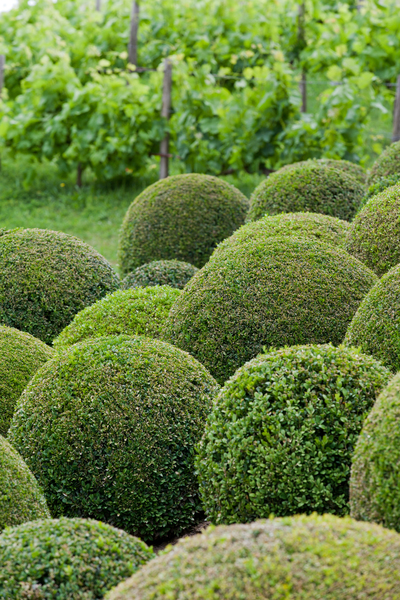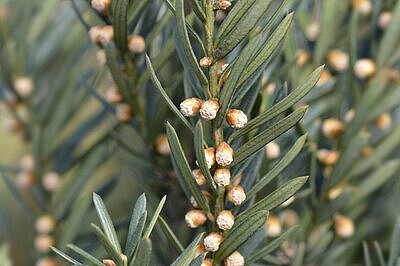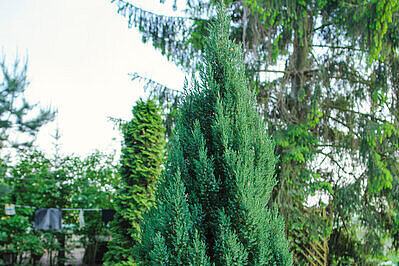Boxwood

What is boxwood?
Boxwood belongs to the genus Buxus and there are more than sixty species. The best-known species is the common boxwood (Buxus sempervirens), which can grow up to four meters high. Its leaves are small, egg-shaped and slightly leathery. The flowers are inconspicuous and have an unpleasant smell.
Why is boxwood poisonous?
All parts of the boxwood contain an alkaloid called buxin, which is poisonous to humans and animals. Buxin affects the nervous system and causes convulsions, paralysis and respiratory arrest. The smaller the body, the stronger the effect of even small quantities on the organism. In dogs and cats, a dose of just 5 mg leads to death.
How do you recognize poisoning?
The symptoms of poisoning usually appear within an hour of ingestion. They can be
- vomiting
- diarrhea
- salivation
- trembling
- weakness
- cramps
- Loss of consciousness
If it is suspected that the dog has eaten boxwood, a vet should be consulted immediately. As there is no specific antidote to buxin, treatment must be symptomatic.
How can you prevent poisoning?
The best prevention is, of course, to keep the dog away from the boxwood. If you have box trees in your garden, you should protect them or replant them so that your dog cannot reach them. When you take your dog for a walk, you should make sure that he doesn't eat from the ground or nibble on other plants.
Does boxwood also have advantages?
Despite its toxicity, boxwood has some positive properties. It is very hardy and easy to care for. It provides privacy and shade in summer. It can be planted as a hedge or solitary plant. It is easy to cut and shape.
It is also said to have a healing effect on skin diseases. In folk medicine, it was once used as a vermifuge and against rheumatism. However, these uses should only be carried out under medical supervision.
Boxwood is a beautiful plant with many design possibilities. However, it is also very poisonous for dogs and other animals. You should therefore always make sure that your dog does not come into contact with it or eat it. If you notice poisoning, you should act quickly and seek veterinary advice.
Properties 4
Are you looking for other ingredients with a specific property?
Just click on them to find more.
If you notice any signs of hypersensitivity or poisoning in your dog, you should see your vet immediately. We are not a substitute for a vet, but we try to be as accurate as possible. Every dog reacts differently and we recommend you get a second opinion or consult your vet if in doubt.
Stay healthy and take good care of your four-legged friend!😊
Similar to Boxwood
Privet (Ligustrum vulgare) is a deciduous to winter-green shrub that belongs to the olive family. It grows wild in hedges and on forest edges as well as in gardens. It is often used as a hedge plant...
Laurel is the name for various plant species from the laurel family. The best-known species is laurel (Laurus nobilis), which originally comes from the Mediterranean region and whose leaves are used...
Yew contains a strong poison called taxine in all parts of the plant, except in the red seed coats of the berries. Taxine affects the heart and nervous system of dogs and can lead to severe symptoms...
Thuja is used in homeopathy as a remedy for various complaints that are often related to a weakness of the immune system. These include, for example, warts, skin rashes, eczema, ulcers, tumors,...



